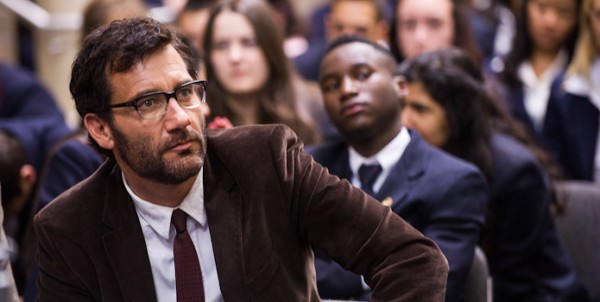 In the unusually thoughtful romantic comedy Words and Pictures, Clive Owen and the ever-radiant Juliette Binoche star as sparring teachers. The two play world-class artists – Owen a writer and Binoche a painter – who find themselves in teaching jobs at an elite prep school. As they spiritedly disagree over whether words or pictures are the most powerful medium of expression, they each admire and are drawn to the other’s talent and passion.
In the unusually thoughtful romantic comedy Words and Pictures, Clive Owen and the ever-radiant Juliette Binoche star as sparring teachers. The two play world-class artists – Owen a writer and Binoche a painter – who find themselves in teaching jobs at an elite prep school. As they spiritedly disagree over whether words or pictures are the most powerful medium of expression, they each admire and are drawn to the other’s talent and passion.
Words and Pictures contains the wittiest movie dialogue in many moons and reminds us that real wit is more than some clever put downs. Owen’s English teacher worships the use of language to evoke original imagery and also revels in pedantic wordplay – the more syllables the better. When his boss asks him, “Why are you always late?”, he retorts “Why are you always dressed monochromatically?”.
The reason that he IS always late is that he’s an alcoholic hellbent on squandering his talent and alienating his friends and family. This is a realistic depiction of alcoholism and of its byproducts – unreliability, broken relationships and fundamental dishonesty. In an especially raw scene, he expresses his self-loathing by using a tennis racquet and balls to demolish his own living space. Top notch stuff.
Binoche plays a woman of great inner strength and confidence who has been shaken by the advances of a chronic illness. According to the credits, Binoche herself created her character’s paintings.
Words and Pictures sparkles until near the end. When the students make the debate over words vs pictures explicit in the school assembly, the intellectual argument loses its force and the tension peters out. So it may not be a great movie, but Words and Pictures is still plenty entertaining and a damn sight smarter than the average romantic comedy.
